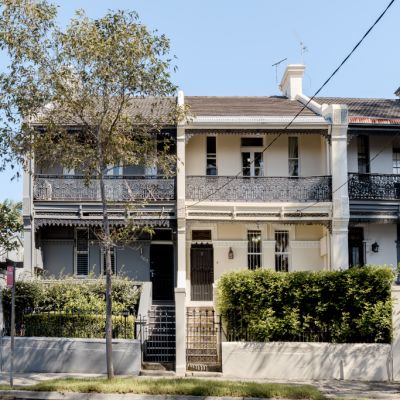We were offered an abundant utopia. We got something much less
Imagine living in a home powered by solar panels and clean energy sources such as wind turbines, nuclear plants and geothermal walls. Your energy bill is so cheap you don’t even notice when the money is taken out of your bank account.
The water that flows out of your taps is fresh and clear, piped from a desalination plant which provides more than half the country’s fresh used water. In your fridge, your organic vegetables grown vertically in nearby glasshouses sit beside succulent meats made from animal cells.

Dirty coal energy is nothing but a distant nightmare, as are the housing and climate crisis and pandemics. This is the world presented in Abundance, the most recent book by US authors Ezra Klein and Derek Thompson, read by almost everyone in Canberra and the blueprint for this week’s economic reform roundtable.
The book argues that to have the future we want, we need to build and invent more of what we need, such as making it easier to build more homes and clean energy infrastructure.
The government has said that productivity will be a focus over its term, and came away from the roundtable with more work to do.
Yet the ideas emerging are far from the utopia outlined in Abundance. Instead of committing to ambitious tax reforms across various sectors, the government is looking to reduce red tape, especially in the housing sector, and simplify the National Construction Code.
It is also looking to streamline interstate trade skills recognition, which economist Richard Holden says is “low-hanging fruit”.
“It’s almost remarkable that’s even an issue,” says the UNSW professor. “The idea you can be licensed to do something in Victoria and you can’t do it in New South Wales, that’s kind of peculiar.”
While Holden believes the discussions have been going in the right directions, he questions how the government would handle “pursuing an Abundance agenda [that] means curtailing some environmental regulations that are already in place.”
“What if it means cutting down on, or circumventing the ability of people to litigate under various environmental statutes? That’s going to be a lot more controversial than interstate recognition of skills – I’m still holding my breath to see how much they really embrace the Abundance agenda,” he says.

Pausing the code could also make it harder to keep up with changes in clean energy home technology, experts warned this week.
Independent economist Saul Eslake says the Abundance agenda is about being more ambitious, and thought that tax changes such as negative gearing and capital gains tax discount should be part of the mix.
But he backed the summit’s work on building regulation. “Do Australian houses need to be insulated against the cold like in Europe? Does every house need to be suitable for everyone with every conceivable disability? Yes, we need to have enough of [those houses], but there is room for pragmatism here.”
He supports the focus on enabling modular housing, which he says would make housing cheaper.
The government also needs to acknowledge that the “construction of new detached houses … is dominated by small businesses who are not very innovative, and don’t spend much training their workers”.
“All these conversations are still determined by small business fetishism … everyone believes there is something inherently more noble about running a small businesses than a large one … even though the productivity in small businesses is 19 per cent below the average for all businesses,” Eslake says.
Holden agrees tackling construction red tape is key to housing affordability, but says it’s a challenge. He says labour productivity in the sector “has gone backwards 18.2 per cent over the last decade”, but to fix it would mean dealing with the CFMEU.
“It’s one thing to pause the National Construction Code … but how about taking on the CFMEU and construction costs? That seems like in a different category of courage.”
Holden would like more discussion around fixing zoning rules: “the federal government could tell the states that some chunk of their GST revenue is at stake if they don’t meet their housing targets”.
Grattan Institute housing program director Brendan Coates agrees: “Half the land within residential Melbourne is zoned for three stories or less. It’s illegal to build more housing in the most affluent parts of our biggest cities,” he says, calling for the federal government to pay states for specific land reforms.
The economists would like the government to tackle capital gains tax concessions and negative gearing, but say this is not on the table – yet.
“What I hope is that this summit will embolden the government to take polices like that to the next election, which, given their majority, they’re probably going to win,” Eslake says.
As for Abundance, he says it’s “given progressives a plausible and appealing rationale to think about deregulation”.
We recommend
We thought you might like
States
Capital Cities
Capital Cities - Rentals
Popular Areas
Allhomes
More










